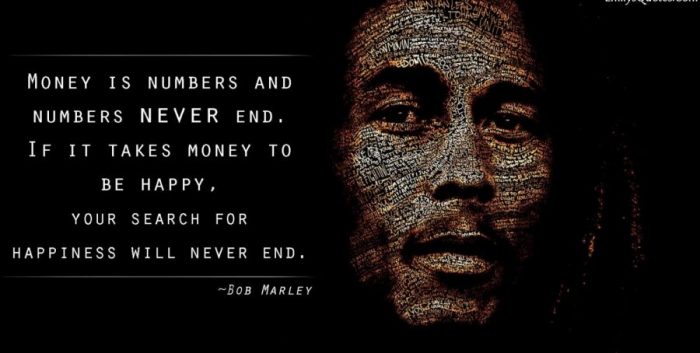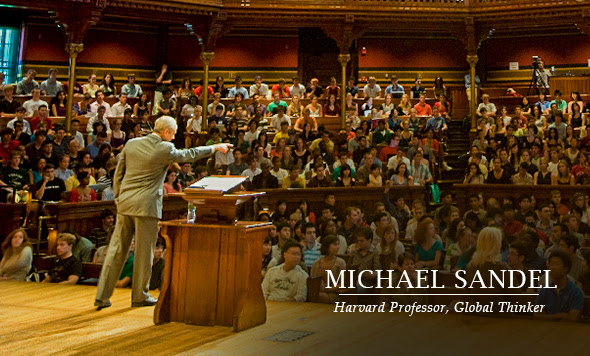
Michael Sandel, American political philosopher, discusses the processes that involve ethical and moral debates. According to Sandel, such discussions do not boil down to the exposition of individual opinions, nor to the search for the correct answer.
Argumentation, persuasion, storytelling and other elements must come into play for groups to learn to resolve impasses about values such as justice and well-living.
Transcript and video

Please enjoy the Harvard course:
1 What’s the Right Thing to Do? – Filosoof Michael Sandel
2 Michael Sandel – Para aprender a argumentar em grupo
Michael Sandel, filósofo político norte-americano, discute os processos que envolvem debates éticos e morais. Segundo Sandel, tais discussões não se resumem apenas à exposição de opiniões individuais, tampouco à busca da resposta correta. Argumentação, persuasão, contar narrativas e outros elementos devem surgir para que grupos aprendam a resolver impasses sobre valores como justiça e bem-viver. Conferencista do Fronteiras do Pensamento 2014.
Waarom brokkelen democratieën langzaam af?
Democratie is op vele manieren in gevaar tegenwoordig.
Mensen zijn gefrustreerd over de politiek, over politie en over politieke partijen.
Eén van de redenen voor deze frustratie is het gevoel dat de politieke discussies die we voeren … over kleine dingen gaan. Triviale dingen. Ze leiden bij de meeste mensen in ieder geval niet tot inspiratie of betrokkenheid. De meeste jongeren voelen zich er niet door aangesproken. In democratieën over de hele wereld zijn we vaak niet meer zo goed in discussiëren. Naar elkaar luisteren. Aandacht geven aan argumenten waarmee we het oneens kunnen zijn.
Hoe bouwen we onze democratieën weer op?
Ik denk dat elke democratische burger aan filosofie zou moeten doen. Filosofie begon met Socrates die door de straten van Athene liep en burgers vragen stelde. Over de manier waarop ze leefden. Over de betekenis van rechtvaardigheid. Over waaruit een goed leven is opgebouwd. De socratische methode stelt ons in staat met elkaar te praten. Soms om met elkaar te twisten. Het is een manier om filosofie met de wereld te verbinden. Met het echte leven. De levens die we leven en de dilemma’s die we elke dag tegenkomen. Dus of het nu gaat om het recht op privacy of wat oneerlijke discriminatie precies is. Of het nu gaat om gelijkheid en ongelijkheid of de rol van robots in onze toekomst. Iedereen heeft een mening. Dus ik denk dat dit soort socratische dialogen kan helpen om te repareren wat er mankeert aan democratie tegenwoordig. Een voorbeeld zijn voor hoe wij als democratische burgers meningen kunnen vormen en argumenten kunnen ontwikkelen. Naar elkaar kunnen luisteren en samen kunnen discussiëren. Dat zou democratie over moeten gaan. We willen de deelnemers en de kijkers uitnodigen om deel te nemen aan een socratische discussie. Iedereen kan meedoen. Ga online. Denk na over een paar van deze ethische dilemma’s. Kijk wat anderen hebben gezegd. Luister naar hun argumenten. En kijk hoe jij erover denkt. Geef jou mening online. Reageer op de argumenten. Geef je mening over het ethische dilemma. En wacht eens af wat andere mensen tegen jou te zeggen hebben.
Why are democracies slowly crumbling?
Democracy in many ways is in trouble these days. People are frustrated with politics and with politicians and with political parties and I think one of the reasons for this frustration is the sense that the political debates who are having are about small things trivial things but they certainly are not inspiring or engaging too many people not engaging to most young people these days and democracies around the world we’re often not very good at reasoning together listing to one another paying to arguments which we may disagree.
I think every Democratic citizen needs to engage in philosophy. Philosophy began with Socrates walking the streets of Athens and asking people questions about the way they live about the meaning of justice about what the good life consists in and the Socratic method enables us to reason together sometimes argue together it’s a way of connecting philosophy to the world real life to the lives we live in the dilemmas we face every day so whether we’re talking about privacy rights or what counts as unfair discrimination whether we’re talking about equality and inequality or the role of robots for our future everybody has an opinion and so I think this kind of Socratic dialogue can help cure what’s ails democracy these days can provide an example of how we as democratic citizens can form use in advance arguments and listen to one another and reason together that’s what democracy should be about.
What we’re trying to do here is to invite the participants in and the viewers into a Socratic discussion so everyone can join really come online consider some of these ethical dilemmas hear what others subset listen to their arguments and see what you think offer your views online respond to the arguments give your view about the ethical dilemma and then see what other people have to say to you.
Michael Sandel is a political philosopher and a professor of government at Harvard University. He is known for his influential work on political philosophy, particularly on the topics of justice and morality. Here are some of the key points of his work:
Critique of market-based societies: Sandel is critical of market-based societies, which he argues reduce everything to a commodity that can be bought and sold. He believes that this approach undermines the value of non-market goods, such as love, friendship, and civic virtue.
The importance of public morality: Sandel argues that public morality is essential for a just society. This involves not just laws and regulations, but also a shared sense of ethical norms and values that guide our behavior and inform our political decisions.
Critique of utilitarianism: Sandel is critical of the philosophical doctrine of utilitarianism, which holds that the greatest good for the greatest number should be the ultimate goal of society. He argues that this approach can lead to the sacrifice of individual rights and values for the sake of the majority.
The need for a more inclusive society: Sandel believes that a just society must be inclusive and must recognize the dignity and worth of all individuals. He is critical of policies and practices that exclude or marginalize certain groups, such as immigrants, minorities, and the poor.
The importance of moral reasoning: Sandel believes that moral reasoning is essential for making good decisions in politics and in life. He argues that we must engage in moral debate and discussion in order to build a more just and ethical society.
Overall, Sandel’s work is characterized by a deep commitment to social justice and a concern for the ethical foundations of politics and society.
English proverbs you should know.
Blind Man Trapped In Self-Cleaning Toilet
2 mei 2019